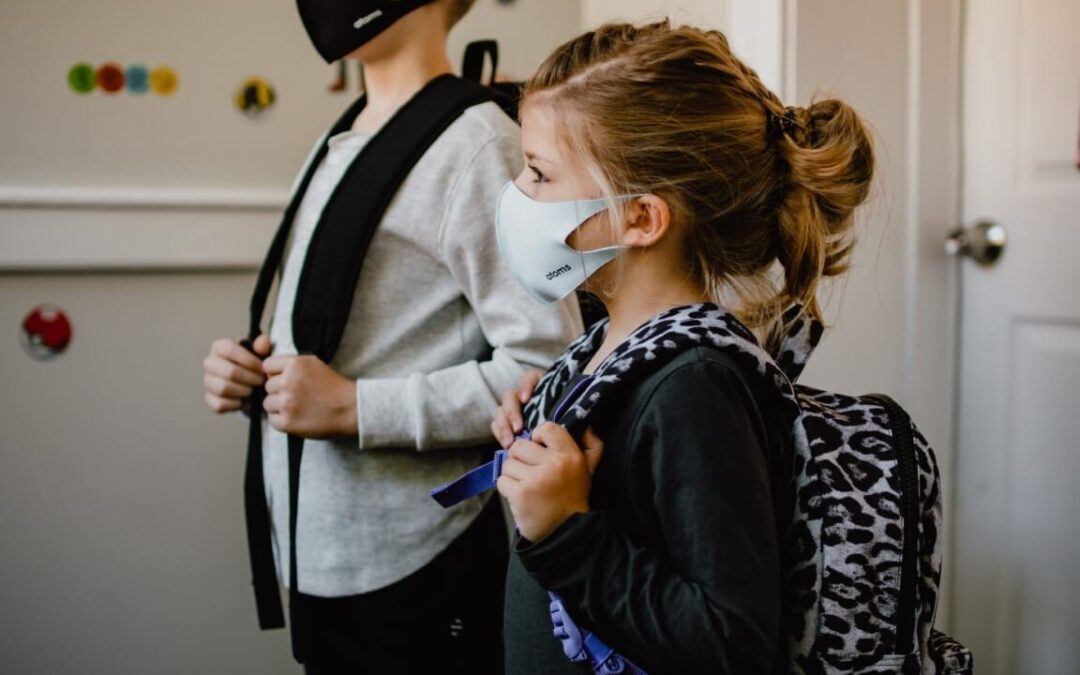From very early in the COVID-19 pandemic, researchers became aware of the detrimental effects lockdowns were having on the mental health of adults and children. In April 2020, just one month into the first UK lockdown, a UK longitudinal survey of over 50,000 individuals found that the percentage of people reporting mental distress rose from 19% in 2018 to 27% in April 2020 (Pierce et al., 2020). We are coming into the third year and many of us have experienced anxiety and other mental health issues as a result of the pandemic. Parents have been hit hard by the pandemic. A survey in the USA found that approximately 40% of parents of children aged under 12 years were experiencing distress and difficulties with parenting. In addition, over half of parents report that their parenting has been negatively affected by financial difficulties due to the pandemic.
Children and adolescents are at key developmental stages and the tremendous strain they have been under throughout 2020/21 has taken its toll on their emotional and mental states. Canadian researchers found that the months of missed school, missed activities and little interaction with others has left the under 18s at a greater risk of mental health disorders, such as anxiety and depression. The research also suggests that they are suffering from high levels of fear and concern about the impact of the pandemic on their lives. Certain groups were identified as being associated with worse mental health outcomes, such as older adolescents, girls, neurodiversity, and those with chronic physical conditions.
How to spot the signs:
Researchers in Pakistan have identified certain behaviours which can give you a clue as to whether your child is suffering from mental and emotional distress. In young children, the first clue to their wellbeing lies with you. Your own fear and stress is highly contagious to younger children. They feed off the subtle signs you are giving them throughout the day. So being mindful of your own emotional state can give you a clue as to how your young child may be feeling. If you notice that your child is tantruming, becoming more fussy, clinger whiney or aggressive, or that their sleep is being disrupted by bad dreams or waking more frequently in the night then they may be showing you that they are stressed. Additionally, regressing to earlier behaviours such as thumb sucking, wetting accidents, or asking for a dummy or bottle can indicate they are are worried. It is worth noting that children with special needs are particularly vulnerable to the negative effects of stress.
Your older children and teens are vulnerable too. They have missed out on a great deal of social interaction with their peers and with extended family members at a pivotal stage in their lives. Between the ages of 12 and 19 is the 5th of 8 stages of psychosocial development. This stage is related to identity and social relationships take centre stage. Teens and pre teens are filled with energy and a desire to discover the world from their own perspective. They are beginning to mark themselves out as different from their parents. Their hormones are driving them to feel especially concerned with peer groups and their relationships within them. Throughout the pandemic they have missed a great deal of time with friends, as well as important milestones such as graduations, and special birthday parties. This may have left your teens feeling frustrated, nervous, disconnected, nostalgic, and bored. Watch out for signs of these feelings.
What you can do?
So, what can you do if your child is showing signs that they are suffering mentally and emotionally?
Look after your own well-being: Research suggests that fear is catching and that children easily pick up on the emotional state of their parents. You are their rock so remaining calm will help to keep your children calm. Studies show that greater consumption of COVID-19-related news coverage during the pandemic was linked to depression and anxiety. Try to limit the amount of time you spend accessing the news. Using the many skills and exercises available in this app can help you to look after your wellbeing.
Keep children informed – but only to a point: Interestingly, research has shown that children and adolescents who felt informed about the COVID-19 pandemic, and what was being done to mitigate the situation, were less likely to experience anxiety and depression (Masuyama et al., 2020). Guiding your child to find the basic facts may help allay their fears, but prolonged exposure has a negative effect, as it does with adults.
Spend quality time with your kids: Canadian research points to positive family relationships, and social support as ways to create wellbeing in children and adolescents. Spending time with your children, listening to them, doing activities with them and encouraging other family members to spend time with them can make a huge difference to your child’s emotional welfare.
Get active! Encouraging your children to get physical will give them a mental and emotional boost. Finding activities your child enjoys is paramount. Not every child is sporty, so look for activities and forms of entertainment which they find engaging, interesting, worthwhile and fun!
Note: If you are suffering with your emotional well-being, seeking professional support may be advisable.









